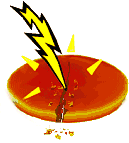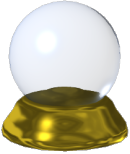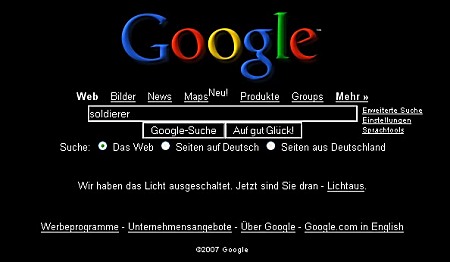 After 2 years and several hundred hours of feeding podcasts into my ears, my Creative Muvo mp3 player broke. Looking for a new one, the new iPod nano with video was one of the options. At first I decided against it because like the iPod Shuffle it requires Apple’s proprietary music player to store files on it, and a powered USB connection to charge it. Several weeks ago I wrote about the iPod Shuffle manager. If something like this would be available for the iPod nano, I might buy one. In fact I found a piece of freeware called Floola. It works like the Shuffle Manager but doesn’t break compatibility with iTunes. So I gave the nano a try. I also bought a USB power adapter, one third the price of Apple’s, that lets me charge it anywhere. No computer USB connection needed, and no iTunes. Nice…. using Apple’s high quality products without getting locked in.
After 2 years and several hundred hours of feeding podcasts into my ears, my Creative Muvo mp3 player broke. Looking for a new one, the new iPod nano with video was one of the options. At first I decided against it because like the iPod Shuffle it requires Apple’s proprietary music player to store files on it, and a powered USB connection to charge it. Several weeks ago I wrote about the iPod Shuffle manager. If something like this would be available for the iPod nano, I might buy one. In fact I found a piece of freeware called Floola. It works like the Shuffle Manager but doesn’t break compatibility with iTunes. So I gave the nano a try. I also bought a USB power adapter, one third the price of Apple’s, that lets me charge it anywhere. No computer USB connection needed, and no iTunes. Nice…. using Apple’s high quality products without getting locked in.
Monthly Archives: Dezember 2007
Third party Flash cookies
 You’ve probably heard about browser cookies (HTTP cookies) before. Web sites can use them to temporarily or permanently store information on your computer. Permanent cookies can therefore be used by advertising networks like Google’s Doubleclick to keep track of the sites you visit. Actually they track your web browser, not you personally. I don’t mind being tracked anonymously. However, it is technically possible to link anonymous profiling data to a person. Let me explain one such possibility. Continue reading
You’ve probably heard about browser cookies (HTTP cookies) before. Web sites can use them to temporarily or permanently store information on your computer. Permanent cookies can therefore be used by advertising networks like Google’s Doubleclick to keep track of the sites you visit. Actually they track your web browser, not you personally. I don’t mind being tracked anonymously. However, it is technically possible to link anonymous profiling data to a person. Let me explain one such possibility. Continue reading
Kimmschicht hilft Wärmebrücken vermeiden
![]() Als Kimmschicht bezeichnet man die auf den Beton zur Herstellung eines planebenen Niveaus aufgebrachte unterste Lage einer Wand. Bei Wänden die auf die Bodenplatte fußen sollte diese mit Kimmsteinen ausgeführt werden. Diese Steine weisen bei vergleichbarer Druckfestigkeit eine wesentlich geringere Wärmeleitfähigkeit auf als die Steine der darauf aufbauenden Wand.
Als Kimmschicht bezeichnet man die auf den Beton zur Herstellung eines planebenen Niveaus aufgebrachte unterste Lage einer Wand. Bei Wänden die auf die Bodenplatte fußen sollte diese mit Kimmsteinen ausgeführt werden. Diese Steine weisen bei vergleichbarer Druckfestigkeit eine wesentlich geringere Wärmeleitfähigkeit auf als die Steine der darauf aufbauenden Wand.
Wir haben âuf eine teure Perimeterdämmung unter der Bodenplatte verzichtet und stattdessen Iso-Kimm Steine aus Kalksandstein für die unterste Lage der Innenwände beheizter Kellerräume verwendet.

eMarketing 5 years from now
 What will be different 5 years from now? Let’s take a look into my crystal ball… Continue reading
What will be different 5 years from now? Let’s take a look into my crystal ball… Continue reading
Google in Black
![]() A black Google home page! At first I thought there must be a problem with my monitor. But then I noticed the link to explain why it’s black. Google Germany joined the “Licht aus für unser Klima” campaign, showing their support for the idea that turning out the light on the evening of December 8 for for minutes would send a clear signal to the participants of the Bali climate conference.
A black Google home page! At first I thought there must be a problem with my monitor. But then I noticed the link to explain why it’s black. Google Germany joined the “Licht aus für unser Klima” campaign, showing their support for the idea that turning out the light on the evening of December 8 for for minutes would send a clear signal to the participants of the Bali climate conference.
This is not Google’s first campaign involving black home pages. They supported similar campaigns with a black home page before. Google adds a statement to explain why they will not change it to black permanently. This is in response to a discussion in the blogosphere about the potential energy savings that could be achieved.
Do you keep up with the change?
Since I have first dialed up to the Internet in late 1993 I consider myself an “early adopter”. There is one trend that existed ever since Web 1.0 was born: Today’s cool stuff will be tomorrow’s ordinary stuff.
Back in the late nineties it took years for a really cool web feature to reach its expiry date, mainly because Internet users expected less than today and because development cycles were much slower due to technology limitations. Having an Internet presence was cool enough. Today, new web sites and applications can be developed in very short time, and to please the demanding internet audience, a lot more features and frequent upgrades are required.
In order to keep up with this fast changing medium, online markters need to spend a lot of time researching online. Unfortunately I can not always make sufficient time available for reading blogs and email newsletters. Listening to podcasts on my way to work helps, but podcasting does not sufficiently cover all important areas of online marketing yet. I wish I had at least one hour just for research every day. Too many of my email newsletters are trashed without reading, and too many RSS feeds create no more than a headline that is never clicked. Pressing delete on interesting subject lines really hurts.
How much of your time do you spend researching online?
